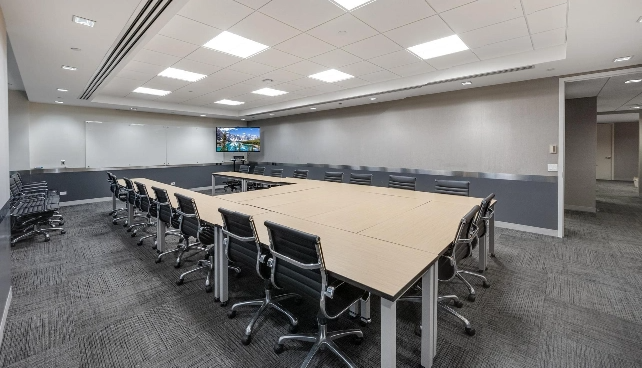Not all that long ago, if you wanted to hire a new staff member, your talent pool consisted of professionals located in your city or those willing to relocate to your city. You may even have had to pay to relocate a new staff member. You also had to have office space for them. While for many companies, that is still the norm, others have embraced the opportunities that remote communication offers. Today, many software development teams, recruitment agencies, SaaS startups, and even sales teams work remotely.

Five Benefits to Embracing Remote Offices and Teams
Access to talent
Recruiting talent has always been a challenging endeavor – going through applications, narrowing down the list of possible candidates, carrying out interviews, selecting the right person and making an offer hoping the candidate takes it. From there, you have to worry about if the person is truly a fit. Will they really be able to carry out the tasks you need them to do? Will they get along well with team members? Will they stick around? The key to finding and retaining great talent is, first off, having a great list of potential candidates to choose from to find that likely great fit. In a proximal office setting, the talent pool is limited as the applicant must be able to get to your office.
Today, a software development team might consist of team members located in Cape Town, South Africa, and Bangalore, India. Better yet, the company that is running the show may be located in Seattle, Washington. It could even be that the team is made up of software developers who work part-time from home in Seattle and do not want to come to an office every day. Currently, Seattle has more demand than supply in the realm of software developers so companies have to be flexible when they hire and offer an opportunity that works for the employee.
Also, a lot of these companies only need developers for a one-time project and uprooting a developer to move to Seattle for six months isn’t too easy or cost-effective. Luckily, with the ability to work remotely, businesses in Seattle can hire people based in their home office down the street or in Mumbai.
Cut salary costs
The goal of any business is to make a profit. Even if you are a company that values environmental preservation and supporting local farmers, your business still exists to return a profit to its owners. Allowing people to work remotely, for many, is a perk; and while people work to bring home a paycheck, salary is not the only incentive that people consider. If you find the right candidate who really values flexibility in their schedule and wants to be able to work from home or from a hotel room in Rio de Janeiro, they just might take a lower salary to allow for their lifestyle. People also take into account that, when working remotely, rush-hour commutes are cut out of the equation, thus they are being paid for fewer hours dedicated to work.
Additionally, in this increasingly global marketplace, companies are hiring across borders. If you need a personal assistant to respond to frequent email requests, update your calendar and take phone calls, you can pay someone in the United States $30,000 per year or you can pay someone in the Philippines a fraction of that salary to be your virtual personal assistant to carry out all of the same functions.
Cut overhead costs
Renting office space, paying the electric bill, and setting up and maintaining a quality internet connection for your business is expensive. If you are in New York or San Francisco, then it is really, really expensive. When your workers work from home or are responsible for finding their own place to work, your business gets to cut all of those abovementioned costs out of the budget.
Again, the reason a business exists as a for-profit enterprise, regardless of the non-monetary impact your business has, is to bring in more money and spend less money to turn a profit. When you are able to cut down on overhead costs, your bottom line gets a little bigger.
Another big plus when it comes to not having a fixed office location is cutting some of your business’s risk by not needing to sign long-term leases. Especially if you are a startup, you do not know the future of your business so you probably do not want to sign a lease that will force you to pay rent for the next few years or deal with subletting or begging the landlord to make a deal and cut you loose.
Increased time flexibility
Sure, even working remotely you have to get teams to meet at certain times via videoconference. However, outside of those meeting times, you and your staff can have quite a bit of freedom in terms of schedule.
For example, imagine your team has a 2pm deadline on Wednesday and you meet virtually every day at 10am to touch base with everyone. Everyone in the team has freedom within those limitations. That means you and your team members can work early in the morning, late at night, or work a few hours here and there around activities that arise in your and your team members’ personal lives.
Increased location flexibility
If your company works with remote workers, this allows you to recruit people within your own city or across the world. This also means that your workers have the freedom to not only live in any city while working with your company but also they can travel and work. If someone on your team lives in Austin, Texas but they decide they want to go work from a guesthouse in Chiang Mai, Thailand for a month or two, as long as they have access to a secure internet connection, they can do that.
Why time and location flexibility matter
A big expense in any business with employees is recruitment and retention. When people do not stay with the company, that means a lot of new employees coming in. New employees need extra attention and training and their work needs revision. This costs a lot of time and money. Finding the magic formula to keep employees around is really great for the bottom line. It is also great for establishing a sense of team. When the team sticks around and people spend years working together, they establish trust and team cohesion. These are also factors that have been shown to contribute to virtual team performance.
Luckily, Gen X and Gen Y, which represent a large portion of the working population, love freedom. They love the flexibility in their schedules and the ability to travel around or work from home. These two generations are marked by a love for independence and a remote work environment allows for that.
Do your employees mostly work on the computers to complete tasks or could they? If your business wants to save money and access and retain the best talent, working remotely might be worth considering.
CoWork. Collaborate. Create.
The opportunities are endless! Book a tour today to see if CoWorking is the right choice for you.
Corporate Suites offers the following office services in NYC:





